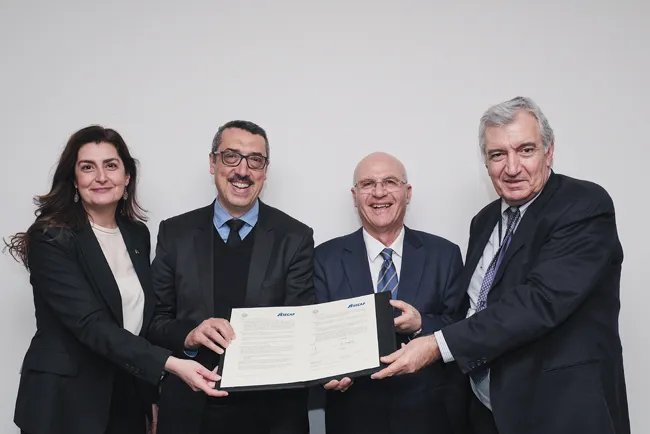More than 1,600 people took part in four days of transport research topic discussion at the TRA2012 conference in Athens, Greece. The event between 23rd-26th April included a special focus on infrastructure, with large numbers of FEHRL (Forum of European National Highway Research Laboratories) members taking part in different sessions.
June 25, 2012
Read time: 2 mins
More than 1,600 people took part in four days of transport research topic discussion at the TRA2012 conference in Athens, Greece.
The event between 23rd-26th April included a special focus on infrastructure, with large numbers of FEHRL (1364 Forum of European National Highway Research Laboratories) members taking part in different sessions.
One key strategic session, entitled 'Infrastructure for the 21st century', was moderated by Hans Jeekel (Rijkswaterstaat) and featured Marit Brandtsegg from1208 Statens Vegvesen (NPRA) and Claude Van Rooten (BRRC) as speakers.
TRA2012 also saw the launch of FEHRL’s transport infrastructure video, illustrating the extension of the ‘Forever Open Road’ concept to railways, runways and rivers. The body’s Forever Open Road research agenda was highlighted in the conference conclusions as an “example of the issues at hand for road infrastructure".
A special session on the DETRA project included the development of the European Transport Research Alliance between key organisations.
Several key decisions for FEHRL's development were also taken at the 26th FEHRL General Assembly (FGA) held during TRA2012. Among these were the welcoming of the Australian Road Research Board (ARRB) Group's commencement of the membership application process, and key agreements on deeper cooperation with the2410 Federal Highway Administration (FHWA), FEHRL's institute in the United States.
The event between 23rd-26th April included a special focus on infrastructure, with large numbers of FEHRL (
One key strategic session, entitled 'Infrastructure for the 21st century', was moderated by Hans Jeekel (Rijkswaterstaat) and featured Marit Brandtsegg from
TRA2012 also saw the launch of FEHRL’s transport infrastructure video, illustrating the extension of the ‘Forever Open Road’ concept to railways, runways and rivers. The body’s Forever Open Road research agenda was highlighted in the conference conclusions as an “example of the issues at hand for road infrastructure".
A special session on the DETRA project included the development of the European Transport Research Alliance between key organisations.
Several key decisions for FEHRL's development were also taken at the 26th FEHRL General Assembly (FGA) held during TRA2012. Among these were the welcoming of the Australian Road Research Board (ARRB) Group's commencement of the membership application process, and key agreements on deeper cooperation with the







